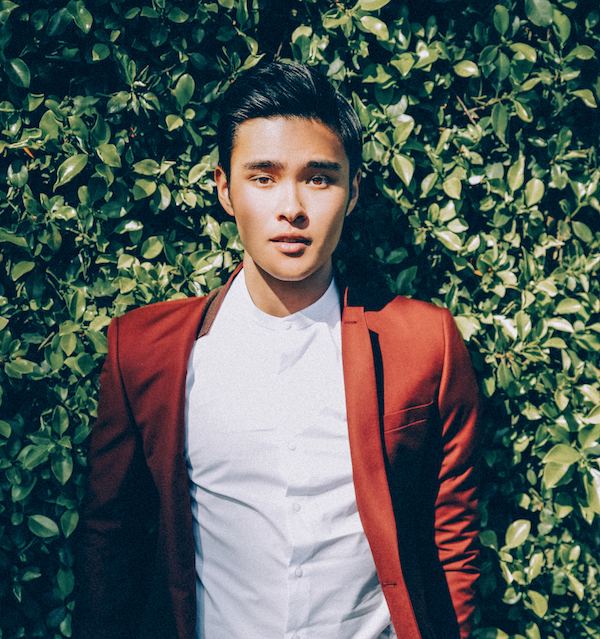Will Jay just wants a chance.
The 20-year-old, Los Angeles native singer/songwriter’s frustration at the seemingly impossible — breaking into the music industry as an Asian American male — led to “Leading Man,” released this week.
He’s spent years trying. After all, Will Jay’s the kind of guy many encounter and think, “Where have I seen this guy before?” The answer might be in 2012, when you may have bobbed along to his music while was one of five members of Simon Fuller’s boy band IM5 (who famously did a Disney parody with Todrick Hall.) Or you might have followed him on “The Voice of China” a couple years back, or maybe even caught his song, “Gentleman,” on his YouTube channel.
Check out the video, and our talk with the “Leading Man,” below:
Did you ever feel, while you were a part of IM5, any of the stereotyping and discrimination you talk about in “Leading Man”?
I was in a band with four other guys. I was the only Asian American, but it was never an issue. We would walk into meetings, and we were looked at as a five-piece thing. Actually, we were all from different ethnic backgrounds. It was a band founded on diversity, it was easy for me to be shielded from that.
Talk to me about your experience, then, with facing these issues of underrepresentation and of feeling the need to write this song.
I’ve felt this my whole life. As a young kid, I had Jackie Chan and that was about it. … I really needed somebody who looked like me to look up to. I didn’t have that. I remember, when I was 10 or 11, I would go on the iTunes charts every morning, and I would scroll through song after song and look for somebody who looked like me. To this day, I could probably count on both hands the number of times I’ve seen somebody who looks like me make an impression on the charts. There just aren’t. Acting is having [progress], but in music, we have nobody. I really wanted to be that first unapologetically Asian American, home-grown guy. I want to be the guy who, when you think “Asian American singer,” you think of me. So writing this song — it’s really about confidence. It was really cathartic for me, coming into this confidence I didn’t know I had. For the first time in my life, [having] the thought that I could be the leading man, that I could be important.
There’s truth in that. We as an Asian American community haven’t been able to see our Drake, our Justin.
Absolutely. It’s long overdue. More than ever, in the past year, we’re finally seeing Asian Americans getting mad about this. Which is amazing. For the first time in my life, I feel like, as a community, we’re banding together and speaking out on Hollywood. I feel like it’s timely, and the song is a part of that movement.

(Edgar Olazaba/Redwall Studio)
Yes. That there’s musicians speaking out about this too. Another example from last year was Dumbfoundead’s “Safe.” What was your reaction to that?
When I watched that – that was really the first art in music that I really think spoke for me. It was what we were feeling. I was blown away by that video. I think it was a reminder to be brave.
Has there been a specific moment for you in which you really felt like you were being boxed in, as an Asian American musician?
I will walk into meetings with labels, and I’ve become very aware of it now. It’s the little things. They’ll ask me, what’s your strategy for Asia? If I were any other race, that would not happen. If I was white, they wouldn’t be like, what’s your Europe strategy? They wouldn’t immediately be casting me off with something that isn’t there. The conversation always goes toward, let’s get you to Asia, you can become a big superstar there, and then we’ll come back. They just don’t see an Asian American working as a viable artist. It bothered me for a long time. Writing this song, this was the story I wanted to tell. This is the artist telling it as it is.
That’s really disheartening to be told, even though you’re Chinese American, that you have to go to Asia first, to get anywhere here.
That all ties into part of the experience of being Asian American. In popular culture, in films, we’re always viewed as being Asian Asians, not Asian Americans. Asian Americans don’t have that identity. It’s about showing that we’re American. That’s what this is about. You tell the Asian American story through songs, through the videos. We have to speak out, make more art. I want the video to provoke thought among Asian Americans, join in this movement.
What’s beyond the “leading man” issue for you? What else do you want to do with your music?
“Leading Man” is the first chapter of a story that I want to tell from my forthcoming album. It’s a story with a beginning, middle and end. It’s the story of my Asian American experience. I’m told that, as men, we can’t be sexual. we can’t be cool, as strong, as assertive. So as a musician, every single one of those stereotypes is a song. So I’m looking forward to creating a body of work that is my narrative.
Follow Will on Facebook, Instagram and Twitter!









